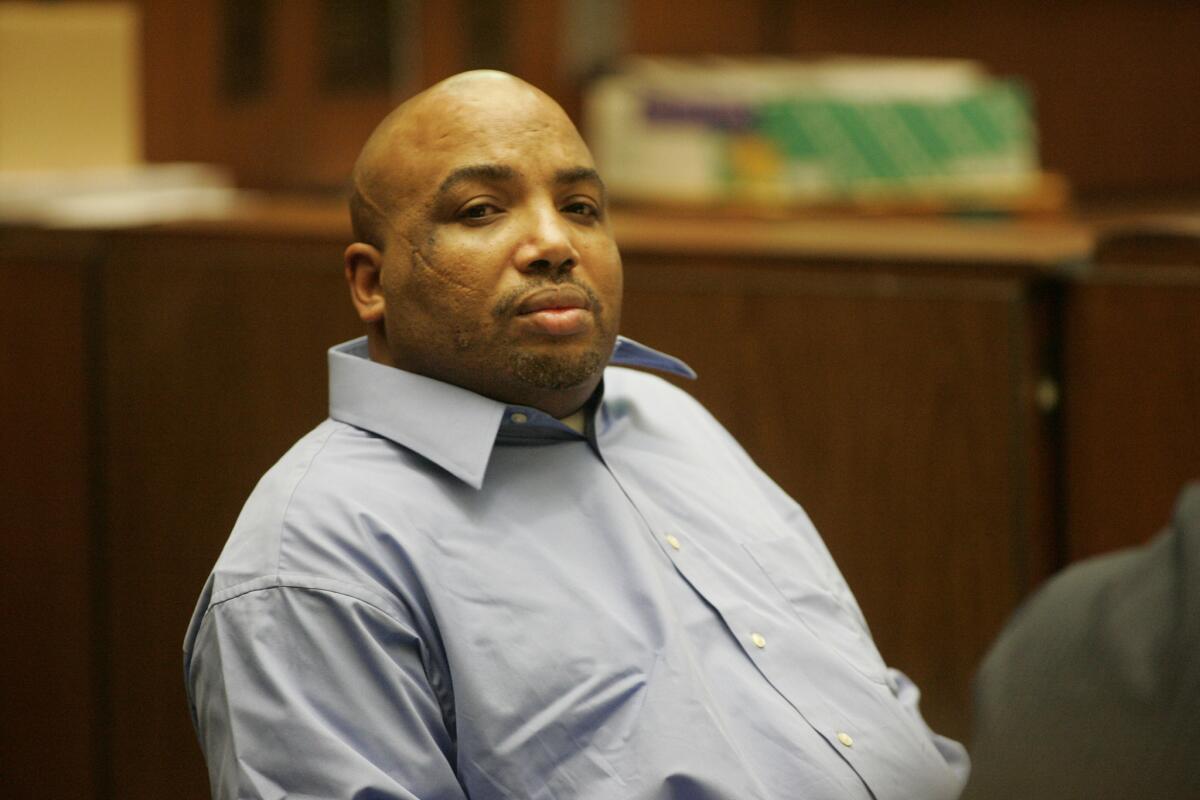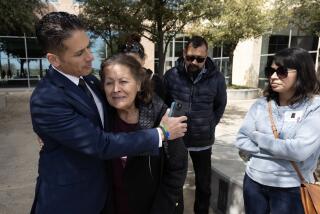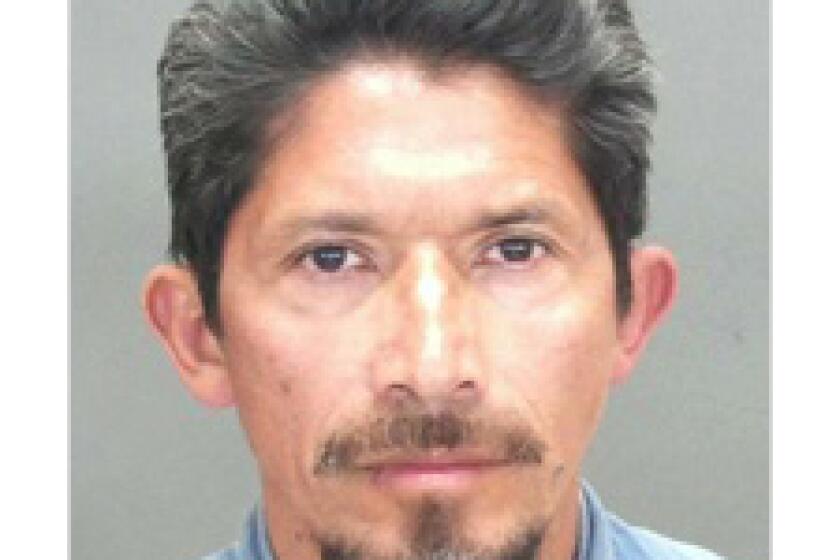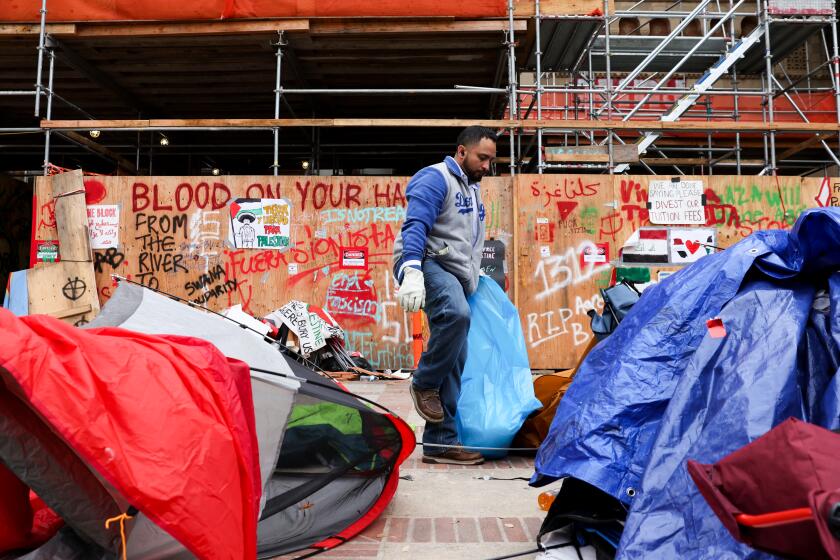Jury decides death for convicted serial killer Chester Dewayne Turner

Tears rolled down Dianna Bright’s cheeks as she recalled the devastation caused by the murder of her younger sister at the hands of a serial killer more than two decades ago.
Their mother, who died nine months after the killing, often complained that “the streets got my baby,” she said. The victim’s adult daughters, Bright said, remain as grief-stricken today as they were when their mother’s strangled body was found dumped in 1992.
On Thursday, Bright watched in a downtown courtroom as jurors announced that the man convicted of her sister’s killing should be put to death for the crime as well as for the murders of three other women.
“You think that you’ve gotten over the death, and then you get that call that tells you that you’ve got to come to court and everything’s starting over again. It’s like a wound that’s scratched up again. Now all of us have a chance to heal,” Bright said after the hearing. “We can breathe and move on.”
Jurors spent about a day and a half deliberating before rejecting a life-without-parole sentence for Chester Dewayne Turner, whom a prosecutor described as the city’s most prolific serial killer.
Turner, 47, showed little emotion as the verdict was read. Behind him in the audience sat several victims’ relatives, some of whom wiped away tears. One victim’s sister, who arrived moments after the announcement, pumped her fist when she learned of the jury’s decision.
The verdict marks the second time that a Los Angeles jury has decided Turner should be put to death. In 2007, Turner was sentenced to death in the killings of 10 women, including one who was 6 1/2 months pregnant.
Turner, a one-time pizza deliveryman, was one of at least five serial killers who prowled South L.A. in the 1980s and ‘90s. Most of his victims were attacked along the Figueroa Corridor, an area then notorious for prostitution, drug crime and violence. Most were raped and strangled.
In the latest case, jurors found him guilty last week of first-degree murder in the killings of Elandra Bunn, 33, who was slain in 1987; Mary Edwards, 42, who was killed in 1992; Deborah Williams, 28, who was murdered in 1992; and Cynthia Annette Johnson, 30, who was killed in 1997.
Police initially suspected others in three of the killings. A part-time janitor spent 11 years behind bars in the killings of Edwards and Williams until 2004, when DNA tests exonerated him and implicated Turner. Another man was charged in connection with Johnson’s death, but the case was dropped on the day of trial.
Bright, a sister of Edwards, said she was struck by how Turner entered the courtroom before Thursday’s verdict “with a stroll like he owned the world. But he’s a monster.”
She said she knew that it could take decades to carry out a death sentence but was gratified that Turner would continue to spend his days on death row knowing that an execution day was approaching.
“Sitting there in that cell day in and day out knowing that death is coming ... that’s the only suffering he will do,” Bright said.
Deputy Dist. Atty. Beth Silverman said it was important for prosecutors to bring the latest case to provide justice for the four victims and their relatives. “He needs to be held to answer for each and every victim that he murdered,” she said.
Jon Roberts, one of Turner’s attorneys, said his client had been well-prepared for the verdict. He noted that Turner has now been convicted of murdering 14 women and a fetus.
Roberts said Turner acted in a way that suggested he wanted to be caught, leaving his DNA on victims or at crime scenes and leaving alive his last rape victim, a woman who knew him. Roberts said Turner followed her as she went to the police station to report his attack.
“For me, that was sufficient evidence that he was trying to seek redemption in any way that he could. I don’t know how you do that when you’re a serial killer other than by getting yourself stopped,” Roberts said. “I think he’s definitely on the path to redemption, and I can only pray and hope that he finds it one day.”
LaVerne Brison, whose sister was among Turner’s victims, said she was angered during the trial when she saw photographs that showed how Turner’s victims had been dumped. One of his victims was left in a portable toilet, another by the side of the freeway.
“It was like he just threw away trash. And he didn’t care,” she said.
One of her sisters, Gwendolyn Cameron, said she believed that execution would be too good for Turner.
“He’s an animal. He doesn’t have a soul,” she said. “He’s straight-up despicable. I wish I had the chance to just spit in his face.”
More to Read
Start your day right
Sign up for Essential California for news, features and recommendations from the L.A. Times and beyond in your inbox six days a week.
You may occasionally receive promotional content from the Los Angeles Times.







